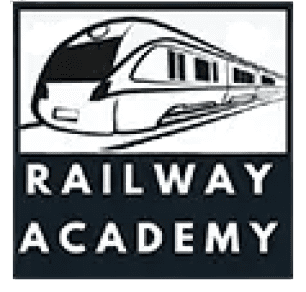Egypt Insights
Full Steam Ahead: Egypt's Railway Revolution Fuels Technical Triumph!
In Egypt, there is currently a significant investment in railway infrastructure, with over 20 projects in progress or planned. Some of these projects include two monorail lines set to open in Cairo this year. One major project is the construction of three high-speed lines totaling 1985km, with speeds of 250km/h. Siemens Mobility, Orascom Construction, and The Arab Contractors are the consortium responsible for the design, construction, commissioning, and maintenance of these lines. The project is divided into two phases, with the first line running from Ain Sokhna to Alexandria and Mersa Matruh, spanning 460km. Phase 2 will extend the line to El Alamein and Mersa Matruh, covering 200km. The completion of this project is expected to significantly reduce travel time and carry millions of passengers annually. Additionally, a contract was signed with NGE, France, for the construction of a 330km double-track line from Ain Sokhna to Borg El Arab, which will further enhance efficiency and capacity. Overall, these railway advancements demonstrate Egypt’s commitment to modernizing its transportation infrastructure and boosting connectivity within the country.
Expansion and Rehabilitation work in Cairo
Alexandria Metro Expansion
Rail Investments and global collaborations for modernisation
Upcoming demand for rail engineers in Egypt
The future of railway engineering is exciting and full of opportunities. With advancements in technology, the railway industry can become more efficient, safer, and sustainable.
One major trend in railway engineering is automation. Self-driving trains are already being tested in some parts of the world, aimed at reducing human error and improving safety. This will require engineers to have expertise in CBTC, ERTMS, Indian Railways automatic train protection( Kavach), and such control systems.
Another area where engineers can make a significant impact is energy efficiency. By using renewable energy sources such as wind or solar power for train operations, railways can significantly reduce their carbon footprint while also saving costs on fuel.
Railways are also adopting digital technologies to improve maintenance practices through predictive analytics and condition monitoring systems. This will require engineers with data analysis skills to interpret large amounts of information generated by sensors embedded in the tracks or trains.
Furthermore, there’s an increased focus on passenger experience that requires innovative designs for both interior spaces and stations to ensure comfort, convenience, and accessibility for all passengers.
The future of railway engineering holds great promise with cutting-edge technologies making way for improvements across areas like safety, sustainability, efficiency, etc. Engineers who possess skills beyond traditional rail engineering – such as data analysis abilities- will be increasingly relevant going forward.
Conclusion
Being a railway engineer is a challenging yet rewarding career that requires a unique skill set and a passion for trains and transportation infrastructure. To excel in this field, it is crucial to possess the top 10 skills needed to be a railway engineer, including technical expertise, problem-solving abilities, and critical thinking.
As the field of railway engineering continues to evolve with technological advancements, staying updated with new techniques and industry trends is essential for professional growth and competitiveness. This continuous learning and skill enhancement is vital to thriving in the ever-changing world of railway engineering.
To embark on this exciting career journey and acquire the necessary skills, consider enrolling in courses offered by the Railway Academy. Their comprehensive courses, available at the Railway Academy, provide valuable knowledge and training in various aspects of railway engineering. From track design and maintenance to signaling systems and project management, these courses offer a wide range of benefits.
By investing in your education and continuously improving your skills, you can pave the way to becoming an accomplished railway engineer. With hard work, dedication, and commitment to professional development, you can make your mark in this dynamic industry.
Discover the possibilities and seize the opportunity to shape the future of railway engineering with the Railway Academy’s courses. Start your journey today and unlock a world of endless opportunities in the fascinating field of railway engineering.


